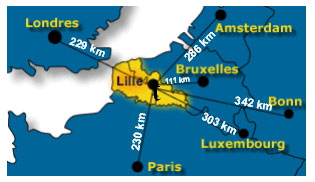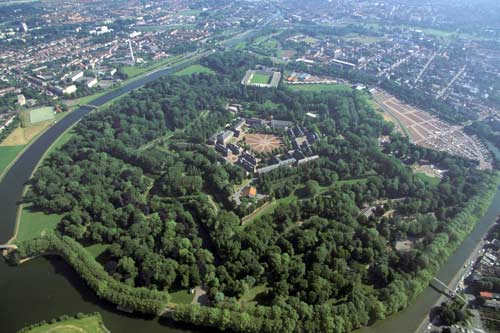Contact: ecc11-org (at) nonlineaire.univ-lille1.fr















Holger KANTZ
Research group Nonlinear Dynamics and Time Series Analysis, Max Planck Institut for the Physics of Complex Systems, Dresden, Germany
http://www.pks.mpg.de/mpi-doc/kantzgruppe.html
Holger Kantz is head of the research group "Nonlinear dynamics and time series analysis" at the Max Planck Institute for the Physics of Complex Systems in Dresden, Germany.
Holger's research interests are centered around the
understanding, modelling, and prediction of complex temporal
evolution of real world systems. In recent years,
the main focus shifted from nonlinear deterministic to
nonlinear stochastic sources of unpredictability and irregularity.
A particular field of inspiration is the dynamics of the atmosphere,
which involves multiple spatial and temporal scales, can be modeled
at very different levels of sophistication, and ultimately, due to
a large number of different sources of uncertainty, allows for probabilistic
forecasts only.
Predictability and prediction of extreme events
Many systems with complex dynamical behaviour are capable of generating large or even huge fluctuations: Either autonomously or in response to invisible perturbations the may deviate considerably from their average behaviour. Such behaviour is known from weather (called "extreme weather" by some weather services), from ocean waves (called "rogue waves" or "freak waves"), from seismic activity (called "earthquakes"), and very many other natural phenomena [1]. A first approach to their characterization is to study recurrence time distributions, which, in the presence of temporal correlations, can display interesting structure [2,3]. Beyond that, extreme events call for their prediction, since they possess usually a large impact on our lives. Due to the complexity of the systems generating extreme events, predictions are very often wrong. It is therefore a challenge to extract meaningful information from unreliable predictions and to design scoring rules for their usefulness. This is done through probabilistic predictions and cost functions. In the talk, the main concepts related to the probabilistic prediction of extreme events are introduced [4,5]. They are illustrated using several data sets of natural phenomena such as weather extremes, traffic data, seismic activity. We also discuss the limit of effectively unpredictable events.
[1] S.A. Albeverio, V. Jentsch, H. Kantz (Eds.), EXTREME EVENTS IN NATURE AND
SOCIETY (Springer, Berlin, 2006)
[2] A. Bunde, J.F. Eichner, J.W. Kantelhardt, S. Havlin, Long-Term Memory: A
Natural Mechanism
for the Clustering of Extreme Events and Anomalous Residual Times in Climate
Records, Phys. Rev. Lett. 94, 048701 (2005).
[3] E.G. Altmann, H. Kantz, Recurrence time analysis, long-term correlations,
and extreme events, Phys. Rev. E 71, 056106 (2005).
[4] S. Hallerberg, E.G. Altmann, D. Holstein, H. Kantz, Precursors of extreme increments, Phys.
Rev. E 75 016706 (2007).
[5] S. Hallerberg, H. Kantz, Predicting extreme avalanches in self-organized
critical sandpiles, Phys. Rev. E 80, 026124 (2009).